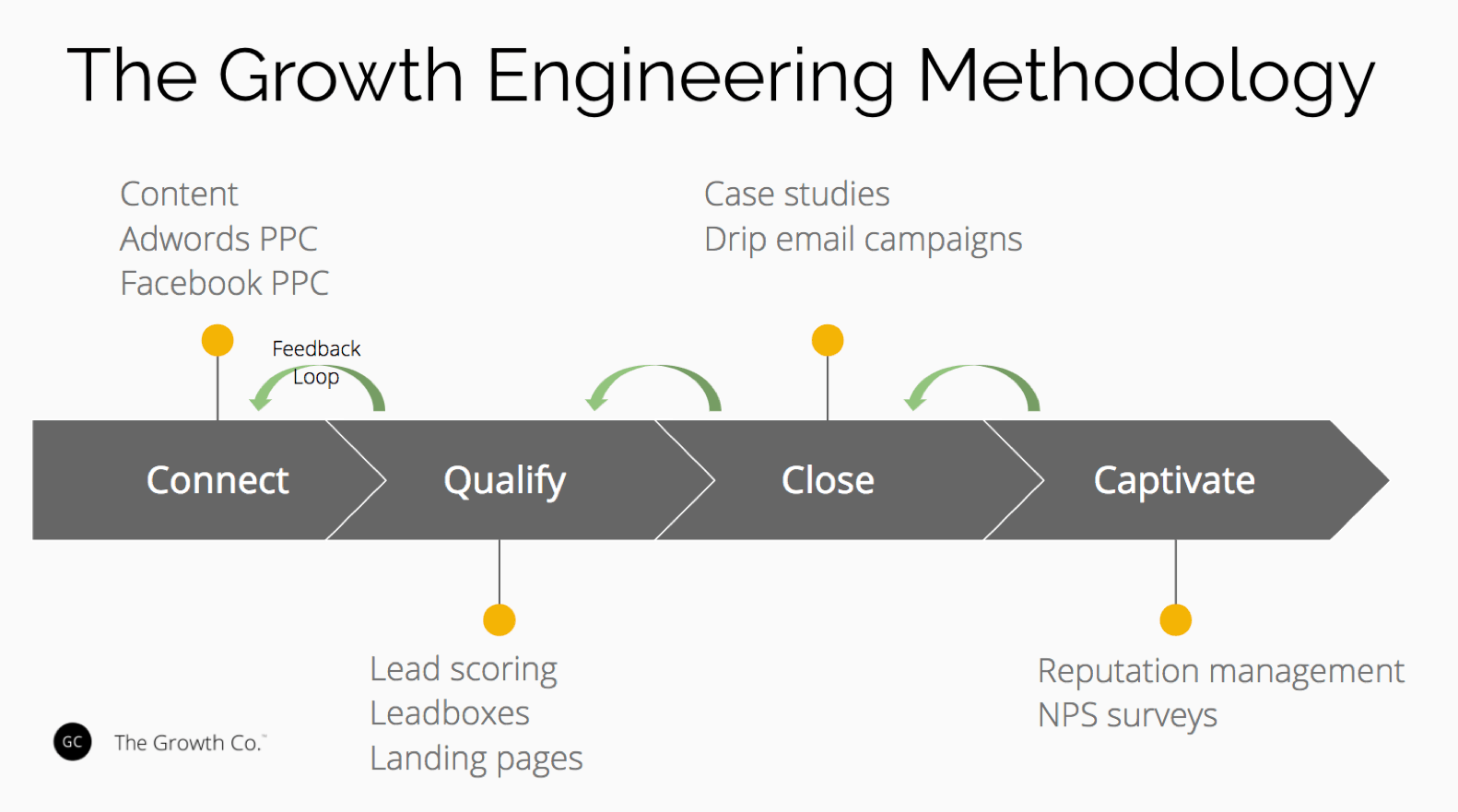
By David Folwell, The Growth Co.
According to the results of Food Processing’s 2017 Capital Spending Survey, food manufacturers planned to spend $17.6 billion on capital projects this year. How much of that business did your company earn? Do you often find that by the time you hear about a new project, your competitors have already had a meeting and are starting to draw up a contract?
What’s the difference between what you’re doing and what they’re doing?
Across all industries today, the thing that distinguishes top performers is how fully they embrace the digital world. Even in an industry that’s highly relationship-based, like food processing and packaging, companies that adopt modern digital strategies succeed because they start to develop those crucial relationships earlier. Rather than waiting for prospects to call on the phone, successful companies are engaging with them online, through content, targeted ad campaigns, email, and social media.
I know, I know…you’ve heard it before: You need digital marketing. But, what you really hear is: Here’s another bill to pay. And your inner voice says: We’re a B2B manufacturing company. We have a website. Isn’t that enough? How could social media possibly grow my business?
If this sounds familiar, then you’re in good company. We’ve heard from a lot of industrial manufacturers that digital marketing isn’t right for their companies or that they’ve tried digital marketing in the past and didn’t see any results.
You might be surprised to learn that several of these manufacturers have become our happiest clients. One, an industrial valve supplier, has grown their website traffic by over 11x and leads by over 22x in just three years. Another, an equipment manufacturer, was recently acquired, in part because of their impressive revenue growth.
What’s the secret?
It’s called the Growth Engineering Methodology. It’s a new approach to marketing that’s focused on top-line revenue and sales results. And it’s changing how marketing is done.
What is growth engineering?
Growth engineering is a combination of five different specialties: content strategy, product management, data science, digital marketing, and growth hacking.
The Growth Engineering Methodology helps companies create scalable systems that deliver profitable growth. It combines systems thinking, experimentation, traditional marketing strategy, and data analysis into a framework that can be applied to any business to create a sustainable competitive advantage. We’ve seen it be especially impactful in manufacturing, where the digital landscape is less crowded than it is, for example, in the tech startup space.
The Growth Engineering Methodology offers a similar construct to a traditional sales funnel, but with one clear distinction: feedback loops. While the process is designed to connect with potential buyers and close new sales, it is also designed to be self-improving so that the cost per sale decreases over time.
Similar to how industrial engineers use tools like AutoCAD, growth engineers implement growth stacks consisting of tools that facilitate A/B testing, content generation, thought leadership, and customer acquisition.
Tools commonly used in the Growth Engineering Methodology
- Unbounce and LeadPages — to create high-converting landing pages
- HubSpot — to automate routine marketing tasks and gain insight into prospects and customers
- Moz — to research keywords and track SEO performance
- Google Analytics and Google Search Console — to understand how visitors interact with your website
- MixPanel — to A/B test landing pages and track user interactions
- BuzzSumo — to discover top-performing content
- SumoMe — to convert website visitors into subscribers and leads
How is this different from marketing?
Growth engineers view business growth through both a strategic lens and a scientific lens. They look at the business goals and the competition, and only then do they define the strategy that will drive long-term growth.
Compared to traditional marketers, growth engineers obsess about KPIs around revenue, profitability, and user growth.
How can the Growth Engineering Methodology help manufacturers?
Last month, ThomasNet.com identified the four biggest challenges facing industrial manufacturers:
- Securing more leads
- Prospects who haven’t heard of your company
- Working with too small a budget
- Creating engaging content
The Growth Engineering Methodology is designed to specifically address all of these challenges by tracking lead generation and conversion metrics, increasing brand awareness, building assets that will continue to drive growth for years to come, and establishing your company as a thought leader in the space. Because it tackles these challenges head-on, the Growth Engineering Methodology is one of the most effective methods for building a sustainable competitive advantage.
We’ve applied this model to everything from industrial equipment suppliers to B2B software providers, and we’ve found time and time again that it not only increases revenue in the short-term but also develops assets that drive long-term growth.
If you’re interested in learning more about the Growth Engineering Methodology, click here to schedule a training session. I’d be happy to explain in more detail how you can scale your business.
David Folwell is President and CEO of The Growth Co., the inbound marketing agency that developed the Growth Engineering Methodology. The Growth Co. is a HubSpot Platinum Partner and the winner of the 2017 HubSpot Impact Award for Happiest Customers in North America. They are also one of the top 5% of Google AdWords partners worldwide.






